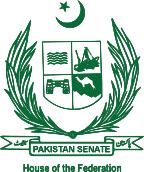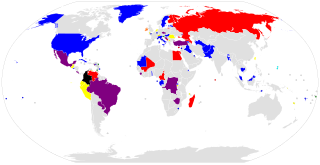Related Research Articles

The politics of Rwanda reflect Belgian and German civil law systems and customary law takes place in a framework of a semi-presidential republic, whereby the President of Rwanda is the head of state with significant executive power, with the Prime Minister of Rwanda being the constitutional head of government.

A senate is a deliberative assembly, often the upper house or chamber of a bicameral legislature. The name comes from the ancient Roman Senate, so-called as an assembly of the senior and therefore considered wiser and more experienced members of the society or ruling class. However the Roman Senate was not the ancestor or predecessor of modern parliamentarism in any sense, because the Roman senate was not a legislative body.
A university constituency is a constituency, used in elections to a legislature, that represents the members of one or more universities rather than residents of a geographical area. These may or may not involve plural voting, in which voters are eligible to vote in or as part of this entity and their home area's geographical constituency.
Member of parliament
Bicameralism is a type of legislature that is divided into two separate assemblies, chambers, or houses, known as a bicameral legislature. Bicameralism is distinguished from unicameralism, in which all members deliberate and vote as a single group. As of 2022, roughly 40% of world's national legislatures are bicameral, while unicameralism represents 60% nationally, and much more at the subnational level.

The Senate of the Philippines is the upper house of Congress of the bicameral legislature of the Philippines with the House of Representatives as the lower house. The Senate is composed of 24 senators who are elected at-large under plurality-at-large voting.

The Parliament of the Republic of South Africa is South Africa's legislature; under the present Constitution of South Africa, the bicameral Parliament comprises a National Assembly and a National Council of Provinces. The current twenty-seventh Parliament was first convened on 22 May 2019.

The Senate of the Republic, constitutionally Chamber of Senators of the Honorable Congress of the Union, is the upper house of Mexico's bicameral Congress. It currently consists of 128 members, who serve six-year terms.
A legislator is a person who writes and passes laws, especially someone who is a member of a legislature. Legislators are often elected by the people of the state. Legislatures may be supra-national, national, or local.

The National Congress of Brazil is the legislative body of Brazil's federal government. Unlike the state legislative assemblies and municipal chambers, the Congress is bicameral, composed of the Federal Senate and the Chamber of Deputies. The Congress meets annually in Brasília from 2 February to 22 December, with a mid-term break taking place between 17 July and 1 August.

The Senate of Pakistan or Aiwān-e-Bālā Pākistān, constitutionally House of the Federation is the upper legislative chamber of the bicameral parliament of Pakistan. As of 2023, It has a total of 100 seats, of which 92 are elected by the provincial legislatures of Pakistan, with equal representation of 23 seats for all provinces, using indirect single transferable votes, while 4 represent the Federal Capital and the remaining 4 are representing FATA, until membership expiration in 2024. Elections are held every three years for one half of the house, each Senator has a term of six years. Unlike the National Assembly, the Senate is a continuing chamber and hence not subject to dissolution.

The Senate is the upper chamber of Parliament in Burundi. It consists of between 39 and 56 members who serve 5-year terms. The current Senate was elected on 20 July 2020 and consists of 39 members.

The Chamber of Deputies is the lower house of the bicameral national legislature of Rwanda. It was created under the new Constitution adopted by referendum in 2003.

The Parliament of Rwanda has consisted of two chambers since 2003:

The upper house of the Parliament of Rwanda is the Senate (Sena/Sénat). The Senate has 26 members elected or appointed for eight-year terms: 12 elected by provincial councils, eight appointed by the President of the Republic to ensure the representation of historically marginalized communities, four by the National Consultative Forum of Political Organizations, and two elected by the staff of the universities. Additionally, former presidents can request to become a member of the Senate.
A senator for life is a member of the senate or equivalent upper chamber of a legislature who has life tenure. As of 2021, six Italian senators out of 206, two out of the 41 Burundian senators, one Congolese senator out of 109, and all members of the British House of Lords have lifetime tenure. Several South American countries once granted lifetime membership to former presidents but have since abolished the practice.

The 1788–89 United States Senate elections were the first U.S. Senate elections following the adoption of the Constitution of the United States. They coincided with the election of George Washington as the first president of the United States. As these elections were prior to the ratification of the Seventeenth Amendment in 1913, senators were chosen by state legislatures.

This national electoral calendar for 2018 lists the national/federal elections held in 2018 in all sovereign states and their dependent territories. By-elections are excluded, though national referendums are included.
The third legislature of the Rwandan Senate commenced in 2019 and will end in 2027.
Pélagie Uwera is a Rwandan politician, since 2019 she has been a member of the Senate of Rwanda, elected as a Senator for Southern Province.
References
- ↑ The Senate of Rwanda on parliament.gov.rw (archived from 28th of September, 2018)